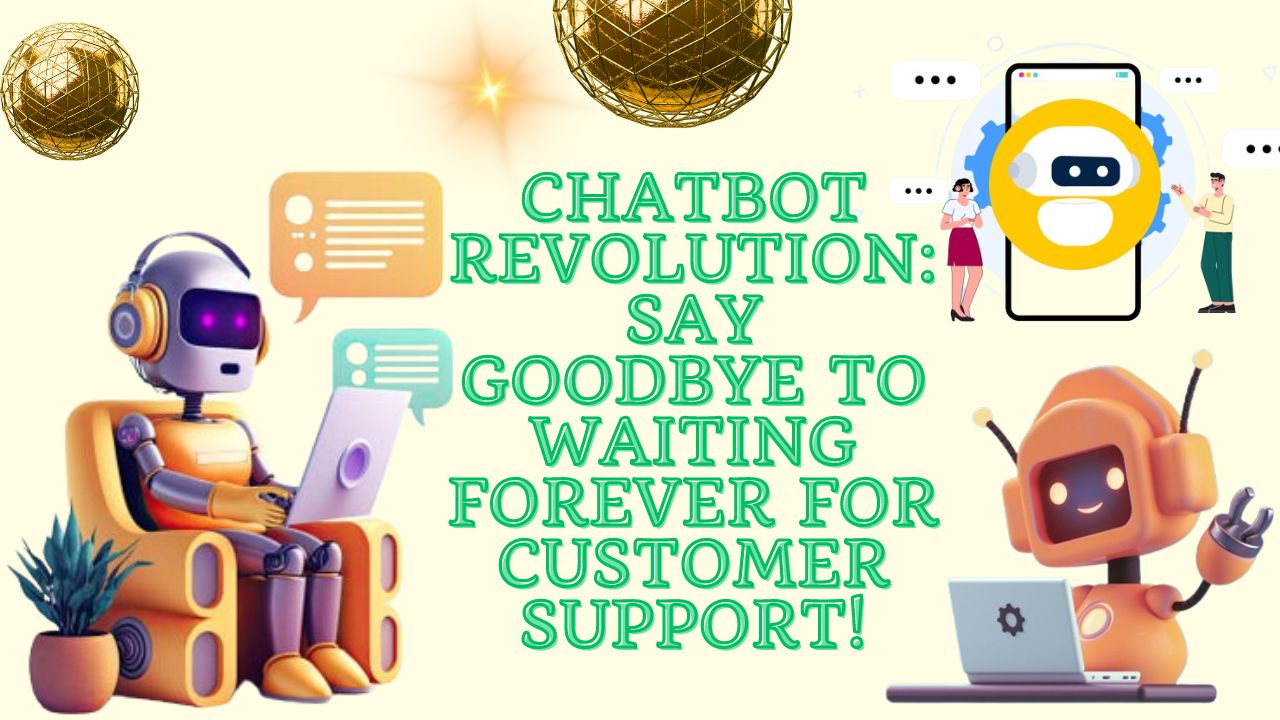Elevating Customer Experience: The Role of Chatbots in Modern Business 2024

Introduction:
In today’s fast-paced digital landscape, businesses are constantly seeking ways to enhance customer experience and streamline operations. Chatbots have emerged as a game-changer, revolutionizing how companies interact with their customers. This article explores the evolution of chatbot technology, from rule-based systems to AI-powered virtual assistants capable of natural language processing. By automating routine tasks, providing instant support, and personalizing interactions, chatbots are redefining customer service standards and driving business growth.
The Evolution of Chatbot Technology:
Chatbots have come a long way since their inception, evolving from simple rule-based systems to sophisticated AI-powered virtual assistants. Early chatbots relied on predefined rules and keyword matching to generate responses, offering limited functionality and often frustrating user experiences. However, advancements in natural language processing (NLP) and machine learning have transformed chatbot capabilities, enabling them to understand and respond to user queries in a more contextually relevant manner. Modern chatbots leverage algorithms to analyze user inputs, interpret intent, and generate human-like responses, blurring the lines between man and machine.
Benefits of Chatbots in Business:
- Enhanced Customer Engagement: Chatbots provide round-the-clock support, allowing businesses to engage with customers in real-time across multiple channels, including websites, social media platforms, and messaging apps.
- Instantaneous Responses: Unlike human agents, chatbots can handle multiple customer queries simultaneously and provide instant responses, reducing wait times and improving customer satisfaction.
- Cost-Efficiency: By automating routine tasks such as answering FAQs, processing orders, and scheduling appointments, chatbots help businesses reduce operational costs and free up human resources for more complex tasks.
- Personalized Interactions: AI-powered chatbots can analyze customer data and preferences to deliver personalized recommendations, promotions, and support, enhancing the overall customer experience and driving customer loyalty.
- Scalability: Chatbots are highly scalable and can handle a large volume of inquiries without additional infrastructure or staffing requirements, making them ideal for businesses of all sizes.
Use Cases of Chatbots Across Industries:
- E-commerce: Chatbots facilitate seamless shopping experiences by assisting customers with product recommendations, order tracking, and payment processing.
- Customer Support: Chatbots handle routine customer inquiries, troubleshoot technical issues, and provide self-service options, reducing the workload on human support agents.
- Hospitality: Chatbots streamline hotel bookings, room reservations, and concierge services, enhancing guest satisfaction and operational efficiency.
- Healthcare: Chatbots offer virtual medical assistance, appointment scheduling, and medication reminders, improving patient engagement and healthcare accessibility.
- Finance: Chatbots provide personalized financial advice, account management, and fraud detection services, empowering customers to make informed financial decisions.
Challenges and Considerations:
While chatbots offer numerous benefits, businesses must navigate several challenges to ensure successful implementation:
- Natural Language Understanding: Ensuring accurate and contextually relevant responses requires advanced natural language understanding capabilities, which may pose challenges for some chatbot implementations.
- Data Privacy and Security: Chatbots handle sensitive customer information, making data privacy and security paramount concerns. Businesses must implement robust security measures to protect customer data from breaches and cyber threats.
- User Experience Design: Designing intuitive and user-friendly chatbot interfaces requires careful consideration of user needs, preferences, and conversational flows to avoid frustration and confusion.
- Integration with Existing Systems: Integrating chatbots with existing business systems, such as CRM platforms and backend databases, can be complex and may require custom development and integration efforts.
- Ethical Considerations: As chatbots become more human-like, businesses must grapple with ethical considerations, such as transparency, consent, and accountability, to ensure responsible use and deployment.
Future Trends in Chatbot Technology: The future of chatbots holds exciting possibilities, with several emerging trends shaping the landscape:
- Multimodal Interfaces: Chatbots will evolve beyond text-based interactions to support voice, video, and visual interfaces, providing more immersive and natural user experiences.
- Emotional Intelligence: AI-powered chatbots will develop emotional intelligence capabilities, enabling them to understand and respond to human emotions, tone, and sentiment more effectively.
- Hyper-Personalization: Chatbots will leverage advanced data analytics and machine learning algorithms to deliver hyper-personalized interactions tailored to individual preferences, behaviors, and contexts.
- Augmented Human Collaboration: Chatbots will augment human capabilities rather than replace them, empowering employees with real-time assistance, insights, and decision support in various business functions.
- Ethical AI and Responsible Deployment: Businesses will prioritize ethical AI principles and responsible deployment practices to ensure fair, transparent, and accountable use of chatbot technology.
Conclusion:
Chatbots have emerged as indispensable tools for modern businesses, offering unparalleled opportunities to enhance customer experience, streamline operations, and drive business growth. From e-commerce and customer support to healthcare and finance, chatbots are revolutionizing how businesses interact with their customers and stakeholders. By leveraging AI-powered chatbots, businesses can deliver personalized, efficient, and seamless experiences across various touchpoints, setting new standards for customer engagement and satisfaction in the digital age. As chatbot technology continues to evolve and mature, businesses must embrace innovation, navigate challenges, and adopt best practices to unlock the full potential of chatbots in driving digital transformation and competitive advantage.






